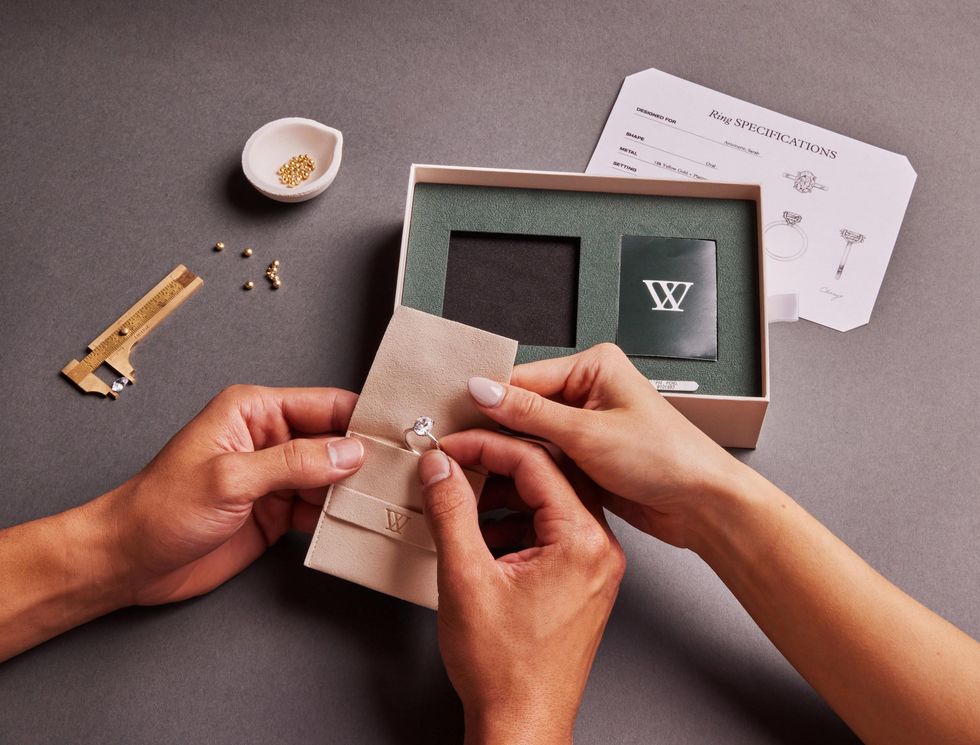Economy
28 November 2022
Funding for no-code ecommerce, digital engagement ring design
This week's Dealboard has funding and M&A news from Yahoo, LVMH, boohoo and more.

This week's Dealboard has funding and M&A news from Yahoo, LVMH, boohoo and more.

Welcome to Dealboard. In this weekly feature, The Current is providing a look at the mergers, acquisitions and venture capital deals making waves in ecommerce, CPG and retail.
This week, acquisition and investment deals unite leading lights in adtech, luxury jewelry and British ecommerce. Plus, startups creating new approaches to ecommerce stores, food delivery, snack bar production and engagement ring buying raise funds.
Here’s a look at this week’s deals:
Adtech company Taboola will become the native advertising provider across all Yahoo properties through an agreement announced Monday.
With the 30-year commercial deal, Yahoo will receive a stake of above 25% of pro forma equity in Taboola.
“Yahoo is an internet pioneer, representing one of the largest, most trusted and most sophisticated publishers in the world,” said Adam Singolda, Founder and CEO of Taboola. “Everywhere I look, I see a rocket ship growth opportunity for both of us - native, eCommerce, Video, header bidding (display) and more.
Yahoo, an internet pioneer, was taken private by funds managed by affiliates of Apollo last year. Taboola, founded in 2007, provides many of the “Around the Web" and "Recommended For You" boxes found on web-based news articles.
Luxury giant The LVMH Group said it acquired the Pedemonte Group, a fine jewelry producer based in Italy and France.
LVMH acquired Pedemonte from the Equinox III SLP SIF investment fund. Terms were not disclosed.
Pedemonte was created in 2020 via the merger of several production houses, and has about 350 employees. LVMH said the acquisition will allow the company to increase capacity in the watches and jewelry division for its houses, which include Bulgari, Tiffany & Co. and TAG Heuer.

Revolution Beauty. (Photo by vonvix on Unsplash)
Boohoo, the UK online fashion retailer, said it increased its investment in Revolution Beauty. The company now has a direct interest of 26.47% in the beauty brand, according to a regulatory filing.
The companies already have a relationship in which Revolution Beauty products are sold through several of boohoo’s DTC brand websites, and digital department store Debenhams.
The news came on the same day that Revolution Beauty announced the appointment of Bob Holt as CEO. Previous chief Adam Minto stepped down earlier this month amid an accounting investigation, and Holt was serving as interim CEO. Check back tomorrow for more on the appointment in On the Move, The Current’s weekly hiring roundup.
Torr Foodtech, an Israeli startup deploying a new approach to creating snack bars by deploying pressure and ultrasonic energy instead of sugary binders to ‘weld’ natural ingredients together, has raised $12 million in a Series A round as it expands partnerships with CPG firms and gears up to launch its own snack bar line, called Presteez. Food Navigator USA has the story.
Investors include Harel Insurance Investments and Financial Services and Mondelez International, according to Crunchbase.
Prado, a food-focused ecommerce and logistics platform for meal delivery, raised $5.75 million in seed funding.
The financing was led by Bonfire Ventures, with participation from Slauson & Co., January Ventures, Alumni Ventures, Bridge Investment Group and Supply Change Fund.
Prado offers a customizable toolkit aimed at serving local food and beverage businsesses that includes marketing, operations and sales solutions for both online and in-store transactions.
“Through personalized, affordable, and culturally relevant food options, we're bullish on leading the charge in transforming the health, economy and security of our nation,” said CEO Jon Carter, in a statement.

(Photo via Wove)
Wove, an online jewelry company, raised $3.85 million in a seed round.
The financing was led by Springdale Ventures, with participation from Outlander VC, Rarebreed Ventures, Context Ventures, VEIP – a veteran entrepreneur-focused investment vehicle launched by PenFed Foundation – WPMC and Early Light Ventures.
Founded in 2021 by former Army Rangers Andrew Wolgemuth and Brian Elliott, Wove helps newly-engaged couples build replicas of engagement rings online, then delivers the genuine article to try on.
"At Wove, we listen to our clients' preferences, and are launching unique features to serve them well beyond our custom at-home try-on experience," said Elliott, in a statement. "We have successfully created a curated design process where we match couples with a world-class in-house jewelry designer, who specializes in their aesthetic, to co-design a customized ring made with high-quality diamonds and 100% sustainable materials."
Popup, a no-code commerce platform, raised $3.5 million, according to Techcrunch.
The pre-seed round was led by Accel, with participation from Seedcamp, 20VC and angels including former Shopify CMO Jeff Weiser and Hopin CEO Johnny Boufarhat.
Founded in 2021 by Shopify alums Corey Holmes and Matteo Grassi, Popup aims to make building an ecommerce store and personalized shopping experiences like landing pages and ads a matter of “drag and drop” for entrepreneurs. Available in beta, the startup expects to launch the platform in general release in 2023.
Campbell Soup Company CEO Mark Clouse offered thoughts on messaging amid inflationary shifts in consumer behavior.
After months of elevated inflation and interest rate hikes that have the potential to cool demand, consumers are showing more signs of shifting behavior.
It’s showing up in retail sales data, but there’s also evidence in the observations of the brands responsible for grocery store staples.
The latest example came this week from Campbell Soup Company. CEO Mark Clouse told analysts that the consumer continues to be “resilient” despite continued price increases on food, but found that “consumers are beginning to feel that pressure” as time goes on.
This shows up in the categories they are buying. Overall, Clouse said Campbell sees a shift toward shelf-stable items, and away from more expensive prepared foods.
There is also change in when they make purchases. People are buying more at the beginning of the month. That’s because they are stretching paychecks as long as possible.
These shifts change how the company is communicating with consumers.
Clouse said the changes in behavior are an opportunity to “focus on value within our messaging without necessarily having to chase pricing all the way down.”
“No question that it's important that we protect affordability and that we make that relevant in the categories that we're in," Clouse said. "But I also think there's a lot of ways to frame value in different ways, right?”
A meal cooked with condensed soup may be cheaper than picking up a frozen item or ordering out. Consumers just need a reminder. Even within Campbell’s own portfolio, the company can elevate brands that have more value now, even if they may not always get the limelight.
The open question is whether the shift in behavior will begin to show up in the results of the companies that have raised prices. Campbell’s overall net sales grew 5% for the quarter ended April 30, while gross profit margins held steady around 30%. But the category-level results were more uneven. U.S. soup sales declined 11%, though the company said that was owed to comparisons with the quarter when supply chains reopened a year ago and expressed confidence that the category is seeing a longer-term resurgence as more people cook at home following the pandemic. Snacks, which includes Goldfish and Pepperidge Farm, were up 12% And while net sales increased overall, the amount of products people are buying is declining. Volumes were down 7%.
These are trends happening across the grocery store. Campbell is continuing to compete. It is leading with iconic brands, and a host of different ways to consume them. It is following that up with innovation that makes the products stand out. Then, it is driving home messaging that shows consumers how to fit the products into their lives, and even their tightening spending plans.
Campbell Soup is more than 150 years old, and has seen plenty of difficult economic environments. It is also a different business today, and will continue to evolve. At the end of the day, continued execution is what’s required.
“If it's good food, people are going to buy it, especially if it's a great value,” Clouse said.